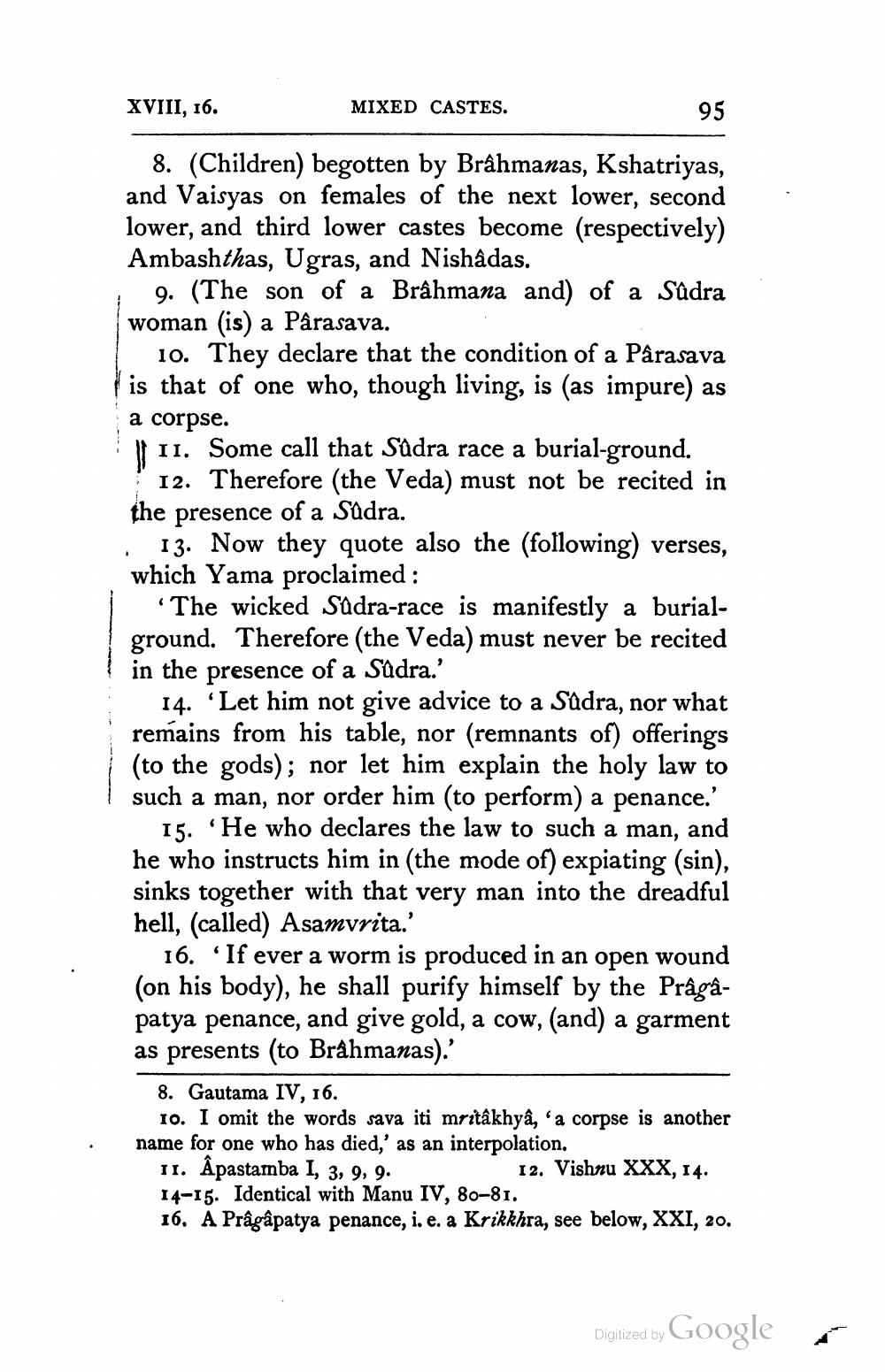________________
XVIII, 16.
MIXED CASTES.
95
8. (Children) begotten by Brâhmanas, Kshatriyas, and Vaisyas on females of the next lower, second lower, and third lower castes become (respectively)
Ambashthas, Ugras, and Nishâdas. 19. (The son of a Brâhmana and) of a Sûdra woman (is) a Pârasava.
10. They declare that the condition of a Pârasava is that of one who, though living, is (as impure) as a corpse.
11. Some call that Sudra race a burial-ground.
12. Therefore (the Veda) must not be recited in the presence of a Sudra. . 13. Now they quote also the (following) verses, which Yama proclaimed :
The wicked Sudra-race is manifestly a burialground. Therefore (the Veda) must never be recited in the presence of a Súdra.'
14. 'Let him not give advice to a Sudra, nor what remains from his table, nor (remnants of) offerings (to the gods); nor let him explain the holy law to such a man, nor order him (to perform) a penance.'
15. 'He who declares the law to such a man, and he who instructs him in the mode of) expiating (sin), sinks together with that very man into the dreadful hell, (called) Asamvrita.'
16. 'If ever a worm is produced in an open wound (on his body), he shall purify himself by the Pragapatya penance, and give gold, a cow, (and) a garment as presents (to Brâhmanas).'
8. Gautama IV, 16.
10. I omit the words sava iti mritâkhyâ, 'a corpse is another name for one who has died,' as an interpolation.
12. Vishnu XXX, 14. 14-15. Identical with Manu IV, 80-81. 16. A Prâgâpatya penance, i. e. a Krikkhra, see below, XXI, 20.
u. Âpastamba 1, 3, 9, 9:
IV 80-81.
Digitized by Google




